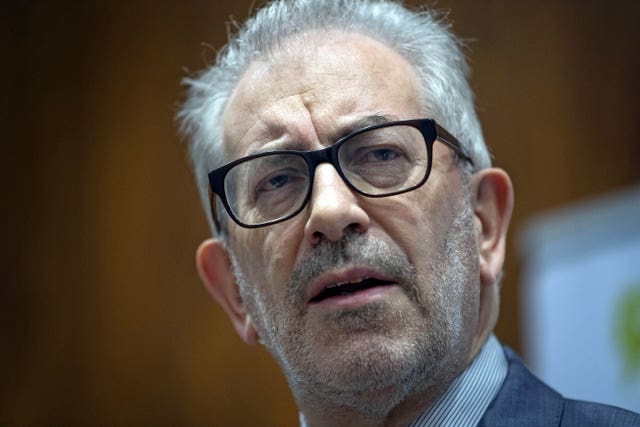
The Government must continue its flagship Everyone In scheme into the long term if it is to meet its manifesto pledge to end rough sleeping within the next three years, a report has said.
The Kerslake Commission on Homelessness and Rough Sleeping is calling for the Government to maintain the additional funding it made available during the coronavirus pandemic – an estimated extra £82 million a year.
Without continuing the scheme’s principles and funding there could be a post-pandemic surge of people sleeping rough, warned the independent panel, chaired by former head of the civil service Lord Bob Kerslake.

The commission said councils and charities predict an increased new flow of people on to the streets as the winter months approach.
This is due to councils having limited options for people with no recourse to public funds (NRPF), fewer rooms being available as hotels pick up business, fatigued frontline staff potentially leaving the sector, and people being affected by the removal of the Universal Credit increase.
The Everyone In initiative saw local authorities instructed at the start of the pandemic to provide emergency accommodation to rough sleepers, people living in shelters with shared sleeping arrangements, and those at risk of rough sleeping.
According to Government estimates, at least 37,000 people were provided with a Covid-secure place to stay, and access to health and other support services.
In March, cross-party MPs from the Housing Committee said the scheme “by definition has finished” as it was no longer helping everyone in need of accommodation, such as those with NRPF.
But the Government insisted the scheme was ongoing and it was “misleading” to suggest otherwise.
The commission was set up to examine the lessons from the public health emergency response to rough sleeping during the pandemic.
It received more than 100 submissions from local authorities, people who have been homeless or have slept rough, and health, housing and homelessness organisations.
The momentum sparked by the Government at the start of the pandemic “has clearly demonstrated that street homelessness can be ended”, it said.
To prevent more homelessness and rough sleeping in the future, the commission is calling for the £20 Universal Credit boost, introduced as a temporary measure during the pandemic, to be maintained.
Street homelessness should be treated as a public health and housing priority, it added, and the Government should establish a clear position that implementing the NRPF policy “must stop short of causing destitution”.
Its interim report has been published to inform ministers ahead of the autumn spending review.
Lord Kerslake said: “If we fail to learn the lessons of Everyone In, all the signs from the commission’s work are that the situation will get worse, not better, and homelessness and rough sleeping will increase.
“That would be an enormous lost opportunity for the Government to deliver on its rough sleeping commitment, and a personal tragedy for those affected.
“We are at a pivotal moment. I fervently hope that the Government does the right thing and takes forward the recommendations in this interim report.”
St Mungo’s, which provides the secretariat for the commission’s advisory board, called the report a “truly comprehensive and considered piece of work” and backed the recommendations.
Chief executive Steve Douglas said: “We at St Mungo’s have seen the tangible positive difference that the work since the start of the pandemic has had on people experiencing homelessness, and we know it has saved hundreds of lives.
“We must not lose that momentum as we transition from lockdown.
“Right now we have a real opportunity to make our shared aim of ending rough sleeping a reality – we must take it.”
The commission’s final report will be published in September.
The Local Government Association said Government funding has been “crucial” but must not become a “one-off emergency response”.
Its chairman, James Jamieson, said: “We want to work closely with Government on a cross-departmental homelessness prevention strategy, which sees councils supported with long-term funding to prevent homelessness from happening in the first place, with the changes to welfare benefits introduced following the coronavirus outbreak maintained for as long as they are needed.”
A Ministry of Housing, Communities and Local Government spokeswoman said: “Our decisive action through the internationally recognised Everyone In scheme has protected thousands of rough sleepers throughout the pandemic.
“We’re building on that success with the backing of an unprecedented £750 million investment this year – giving rough sleeping and health services the funding they need to help get people off the streets and into settled accommodation.”


Comments: Our rules
We want our comments to be a lively and valuable part of our community - a place where readers can debate and engage with the most important local issues. The ability to comment on our stories is a privilege, not a right, however, and that privilege may be withdrawn if it is abused or misused.
Please report any comments that break our rules.
Read the rules hereLast Updated:
Report this comment Cancel